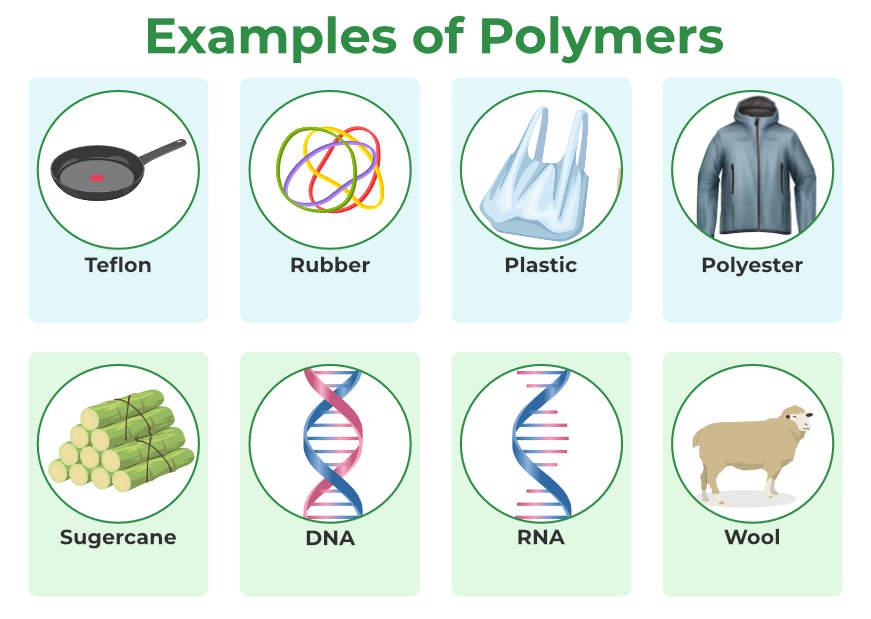Polymers in Building And Construction: Stronger, Less heavy, and Extra Sturdy
Polymers in Building And Construction: Stronger, Less heavy, and Extra Sturdy
Blog Article
Discovering the Varied Applications and Advantages of Polymers in Different Industries
Polymers, with their diverse variety of residential properties and performances, have actually become crucial in different sectors, each gaining one-of-a-kind take advantage of their application. Polymers. From enhancing safety and security and efficiency in the automotive industry to reinventing clinical devices in the health care sector, polymers play an essential duty. Moreover, their environmentally friendly nature is changing the landscape of sustainability methods. As we look into the depths of polymers in electronic devices, we uncover advanced technologies, while their architectural stability transforms the world of building and facilities. The pervasive influence of polymers throughout industries is a testament to their convenience and flexibility, shaping the future of plenty of markets.
Automotive Industry Applications
Polymers play a crucial function in enhancing the efficiency and toughness of various parts within the automotive industry. These flexible products are thoroughly made use of in the production of different parts, ranging from interior components to under-the-hood applications. One prominent use polymers in the automobile industry remains in the manufacturing of light-weight elements. By changing typical metal get rid of polymer-based choices, automobiles can achieve better fuel performance without compromising on stamina or safety and security.

Health Care Sector Advantages
In numerous healthcare applications, the benefits of using polymers are commonly recognized for their varied variety of valuable residential properties. Polymers play a vital duty in the healthcare sector as a result of their convenience, biocompatibility, and cost-effectiveness. One of the key advantages of polymers in health care is their ability to be customized to certain demands, such as versatility, durability, and biodegradability, making them perfect for a wide variety of clinical applications.
Polymer-based materials are extensively used in medical devices, such as catheters, implants, prosthetics, and medicine delivery systems, because of their biocompatibility and capacity to resemble all-natural cells. These materials can lower the threat of allergic reactions or rejections, improving client safety and outcomes. In addition, polymers are light-weight, making them suitable for wearable medical gadgets and guaranteeing individual comfort.
Furthermore, polymers make it possible for the development of innovative therapy techniques, such as hydrogels for tissue design and nanocomposites for targeted medication shipment. Their simplicity of processing and sanitation makes them necessary for preserving high criteria of hygiene in healthcare setups. On the whole, the diverse benefits of polymers contribute significantly to improvements in medical technology and patient treatment.
Ecological Benefits of Polymers

Moreover, polymers can contribute to power cost savings because of their light-weight nature. In industries such as transportation, light-weight polymer materials can help in reducing gas usage and greenhouse gas exhausts. Additionally, polymers can make it possible for the growth of energy-efficient products such as insulation products check over here that enhance power conservation in buildings.
Furthermore, polymers play a critical function in reducing water air pollution. For instance, using polymer-based purification systems can properly remove pollutants and contaminants from wastewater, protecting water resources and ecosystems. In general, the environmental advantages of polymers make them important assets in promoting sustainability and green methods across numerous markets.
Polymers in Electronic Devices and Technology
Thinking about the enhancing demand for cutting-edge and lasting solutions in contemporary sectors, the assimilation of advanced polymer technologies in the world of electronic devices and technology has actually emerged as a crucial strategy for driving performance and performance. Polymers have transformed the electronics market by allowing the production of lighter, more versatile, and long lasting digital gadgets. From mobile phones to clinical gadgets, polymers play a crucial duty in improving item style and functionality.
One significant advantage of polymers in electronics is their protecting properties, which assist secure delicate electronic components from ecological elements and electric interference. In addition, polymers are essential in the growth of flexible display screens, wearable innovation, and published electronics, supplying endless opportunities for developing clever and interconnected devices.
Furthermore, the use of polymers in electronic product packaging has brought about advancements in miniaturization and thermal management, boosting the overall performance and dependability of digital systems. As modern technology proceeds to advance, the versatility and versatility of polymers will most certainly drive further development in the electronics sector, shaping the future of modern technology.
Role of Polymers in Construction and Infrastructure
Polymers offer various benefits in the building and construction industry due to their convenience, sturdiness, and cost-effectiveness. One crucial duty of polymers in building is their use in layers and sealers, giving security against ecological variables such as moisture, UV radiation, and deterioration.
Moreover, polymers play an important duty in lasting building and construction methods by enabling the development of energy-efficient frameworks. Shielding materials made from polymers help control interior temperatures, decreasing the demand for heating and cooling down systems and inevitably decreasing power consumption - Polymers.
Final Thought
In verdict, polymers play a critical role in numerous sectors such as auto, healthcare, environmental, electronics, and construction. Their versatile buildings make them valuable in producing ingenious services go to my site and products. From boosting gas efficiency in cars to improving clinical gadgets, polymers use many advantages. In addition, their effect on lowering waste and promoting sustainability highlights their significance in modern-day applications. The prevalent usage of polymers shows their substantial contribution to advancing technology and boosting high quality of life.
Report this page